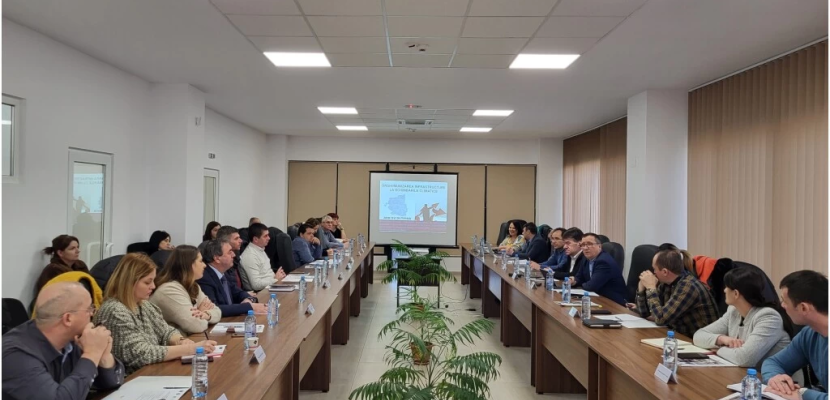
DNSH Training Sessions for Capacity Building of Managing Authority staff in Green Transition

About this good practice
As the compliance to the "Do No Significant Harm" (DNSH) principle is a new requirement for the Cohesion Policy 2021-27, many managing authorities lack the necessary expertise to effectively assess its application. This knowledge gap could hinder the integration of the principle into EU-funded projects.
To address this challenge, the staff of the Regional Development Agency South-West Oltenia (RDA SW), managing authority of the ERDF 2021-27 Regional Programme, is participating in a structured training program designed to enhance their capacity to apply DNSH principles in project evaluations.
So far, the training plan has included five in-person meetings (4 hours each) with 28 staff members per meeting.
The specialized DNSH training was provided by a professor at the University of Craiova with expertise in environmental regulations and EU funding. The training focused on:
- Understanding the DNSH principle within the ERDF framework
- Practical methods for assessing environmental impacts
- Ensuring that projects funded under the 2021-2027 programme align with DNSH criteria
- Real-world case studies and interactive discussions
The 140 trained RDA SW staff, who now have improved knowledge and skills to assess DNSH compliance, are actively involved in assessing ERDF funded projects, defining calls for proposals, etc. (to be specified according to their roles).
The trainings will continue every year until 2027.
Resources needed
The training required funding for trainer profile definition, training materials, venue, and digital infrastructure. The main resources included the involvement of a specialized university professor, administrative coordination, and time investment by 140 staff members.
Evidence of success
The DNSH training significantly enhanced the capacity of 140 RDA SW staff members to apply DNSH criteria in the ERDF 2021-2027 Programme. Key results include:
- Increased awareness and competence in DNSH assessment, ensuring better project evaluations
- Improved quality and compliance of project proposals with EU environmental standards
- Positive participant feedback, confirming the training’s effectiveness in bridging knowledge gaps and supporting sustainable project implementation.
Potential for learning or transfer
This DNSH training model from RDA SW serves as a replicable approach for regional development agencies and managing authorities across EU.
Key factors: expert-led instruction by a university professor, practical case studies, interactive discussions, and direct alignment with ERDF requirements. The methodology ensures that staff gain both theoretical knowledge and hands-on experience.
This practice could be transferred to other regions managing EU structural funds, aiming to strengthen DNSH compliance skills and integrate green requirements into their project evaluations. By implementing this practice, other managing authorities can enhance their staff’s ability to assess and enforce DNSH criteria, improving the overall quality & compliance of funded projects.
